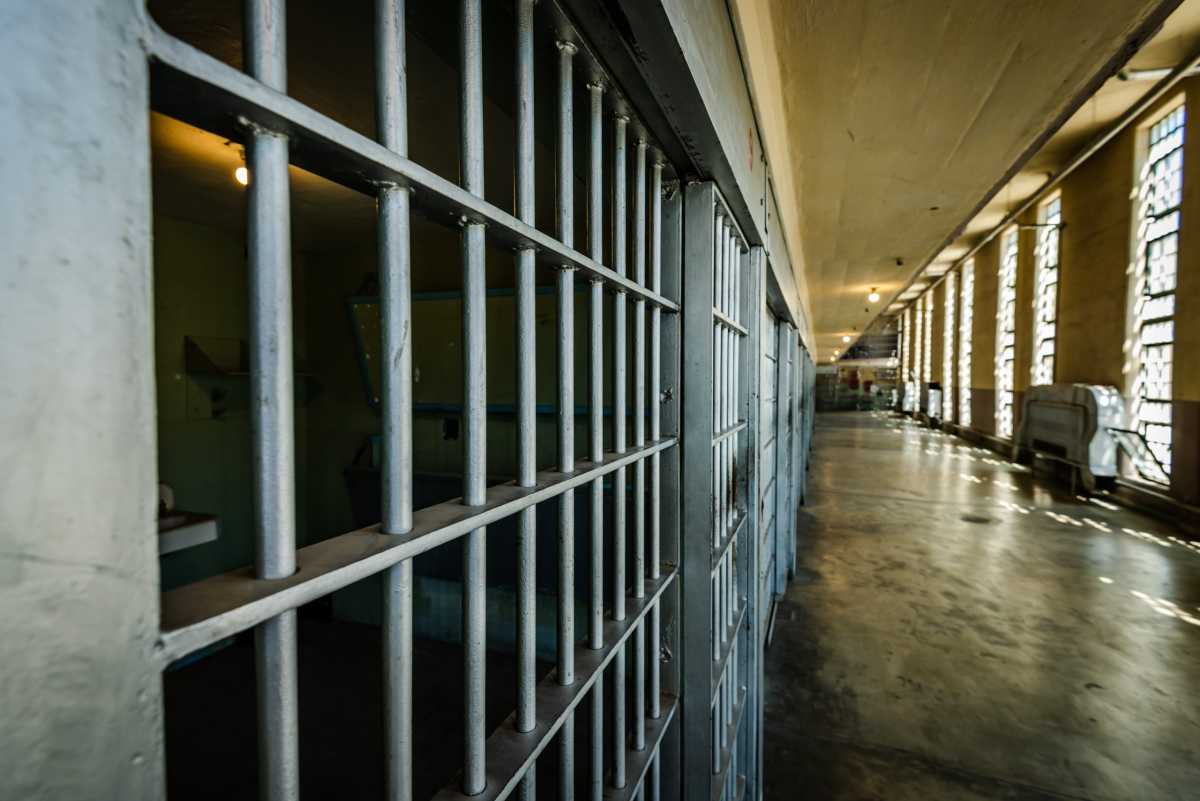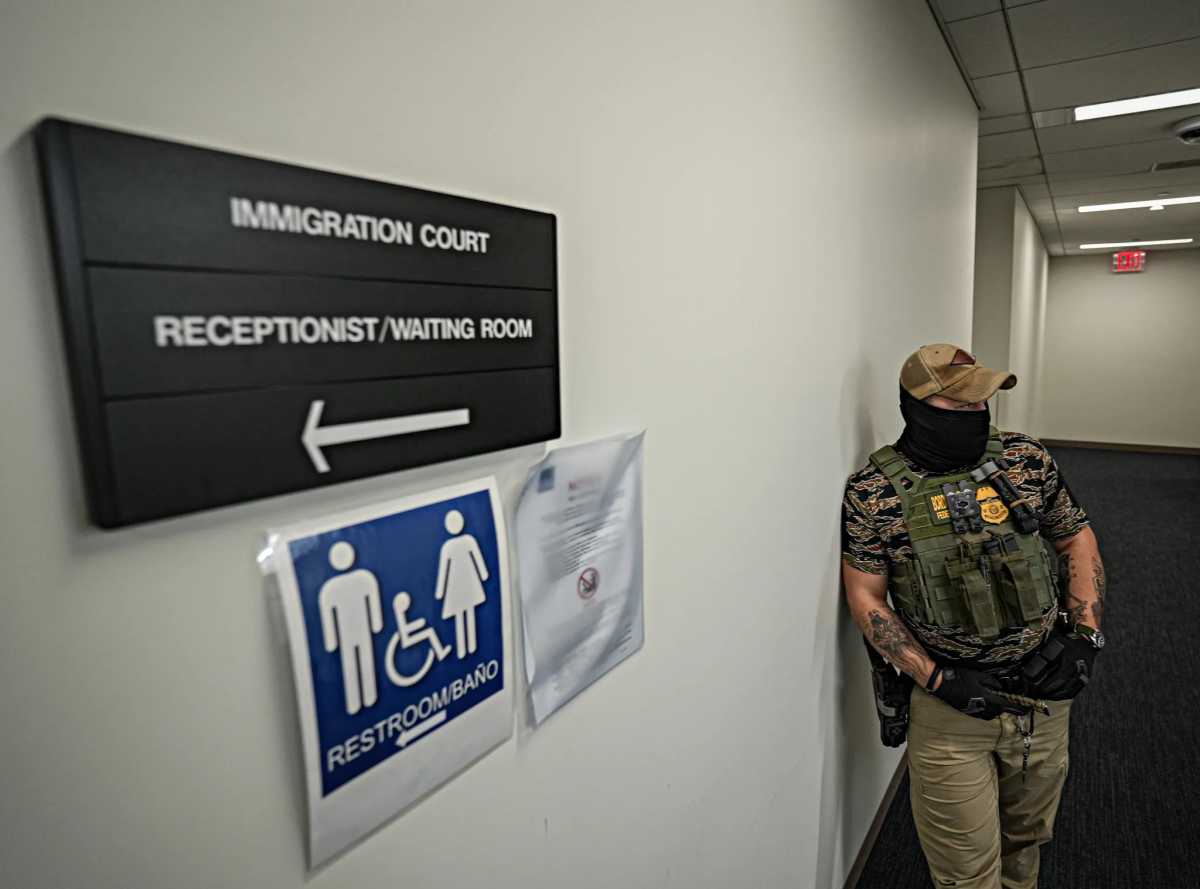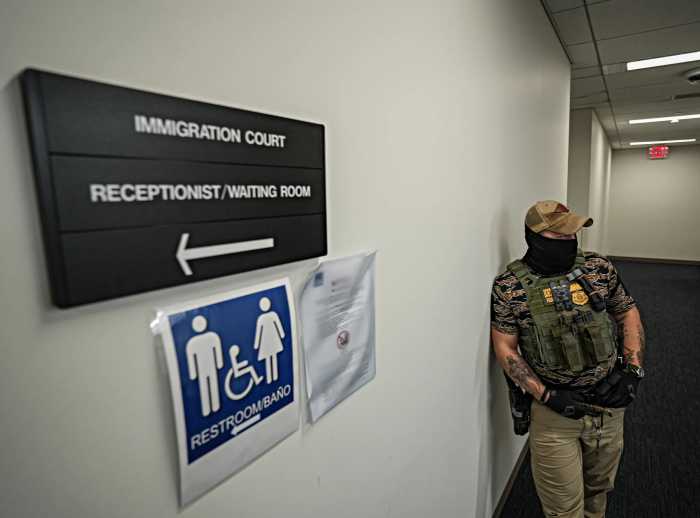Criminal justice advocates and lawmakers launched on Tuesday a campaign seeking to abolish various legal fees in New York that, they say, serves as a cruel catch-22 preventing former inmates from rebuilding their lives.
The “No Price on Justice” initiative seeks another level of criminal justice reform that would eliminate various fees and surcharges against inmates that have disproportionately impacted low-income people of color — including parole and probation fees, traffic infraction surcharges, court fees and even a charge for the state’s DNA databank.
Four New York City lawmakers also announced the introduction of two new bills in the state legislature to eliminate these various fees and prevent the state from garnishing inmates’ commissary accounts — which are funded through extremely meager inmate wages of pennies on the dollar an hour, and their families to purchase necessities such as food and toiletries.
According to Marvin Mayfield, statewide organizer of the Center for Community Alternatives, legal fees have become “a backdoor tax on those least able to pay” and a revenue stream for state and local governments. This, he said, results in disproportionate and aggressive policing policies across the state.
It’s the same situation that developed in Ferguson, Missouri by 2014, when police shot and killed Michael Brown, an unarmed Black teenager. The shooting led to protests across the city and country seeking an end to police brutality — as well as a federal Justice Department investigation which found that the Ferguson Police Department “aggressively policed” in the community to generate fines and fee revenue.
“New York has the same problem now that Ferguson did in 2014,” Mayfield said during a Zoom conference announcing the new campaign. “A national survey revealed that New York is one of the top states most reliant on fines and fees for revenue, and over 500 jurisdictions statewide have increased their reliance on it. This puts New Yorkers of color at greater risk of deadly interaction with police.”
Several formerly incarcerated New Yorkers, or their advocates, spoke to the struggles of rebuilding their lives after prison as a result of staggering legal fees against them.
Anitria Blue said parole and probation fees have made it difficult to find a job, seek out a Master’s degree and rebuild her life. Robin DelPriore spoke of her incarcerated son, Alexander, and his struggles to obtain food to help stop diabetic attacks in prison because the state continues to garnish his commissary account.
Rondese Hilton-Jones of New York Communities for Change, released from Nassau County jail in September, said being on probation has made it almost impossible to find work — and the county has hit him with steep fines that make it even more difficult to support his children.
“They keep a foot on my neck, and these fines and fees are really bleeding my family, keeping us down,” Hilton-Jones said, “and these things need to change. I can’t even afford to fight this system.”
Jermaine Barrett spent 15 years in prison and is still struggling to pay court fees.
“I can’t overstate what has been done with regards to probation and parole fees being mandatory in New York state,” Barrett said. “When I think about [probation/parole] as an entity, they are not only supposed to help facilitate community needs, but they’re also supposed to help and assist the formerly incarcerated. … My question is, and it’s purely rhetorical, how do these policies help as opposed to hinder?”
Seeking to advance the agenda in Albany, Brooklyn state Senator Julia Salazar and Manhattan Assemblywoman Yuh-Line Niou announced the introduction of the End Predatory Court Fees Act, which would eliminate some of the legal costs incurred by convicted individuals and leave them mired in debt upon release.
“The harm that these fines, fees and surcharges continue to cause communities, and especially the harm caused to Black and Brown New Yorkers, is enormous,” Salazar said. “This policy of financially punishing people is a barrier between reintegrating formerly incarcerated people back into society. It really is, to use the crude metaphor, kicking someone while they’re down instead of trying to help them up.”
Meanwhile, Bronx state Senator Luis Sepulveda and Manhattan Assemblywoman Carmen De La Rosa also voiced support for the legislation, and are seeking further legislation to remove parole and probation fees. They said removing the financial obligations would break a system that directly targets low-income Black and Latinx New Yorkers and their families.
“I believe this package that we are putting forward today will help highlight the plight of people who’ve given all they can while everything else was taken away,” De La Cruz said. “In order to break the system and the design of this system, we need to believe in a system that will transform the lives of those who passed through it and not continue to enslave those who have been behind bars.”
For more on the No Price on Justice campaign, visit nopriceonjustice.org. Among the active participants in the campaign include the Center for Community Alternatives, New Hour for Women and Children, New York Communities for Change, Brooklyn Defender Services and Cornell University’s Prison Education Program.





























